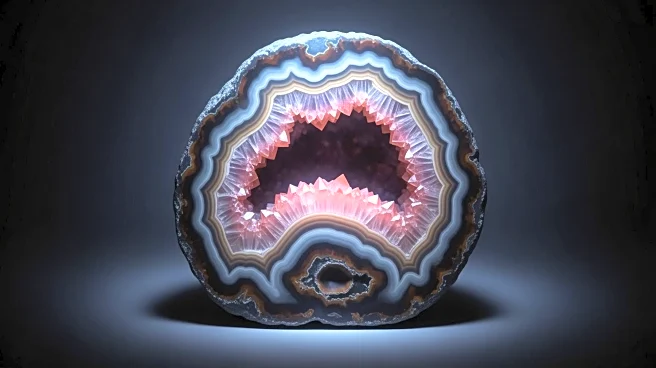What's Happening?
Researchers have discovered a chemical signature in ancient rock samples that suggests remnants of proto-Earth may still exist within the planet. The study, published in Nature Geoscience, found an imbalance
of potassium isotopes in rocks from Greenland, Canada, and Hawaii. This anomaly could not have emerged from known geological processes on modern Earth, indicating it may be leftover material from proto-Earth before a Mars-sized meteorite impact transformed the planet 4.5 billion years ago.
Why It's Important?
The discovery challenges the consensus that Earth's chemistry was completely reset after the meteorite impact, suggesting that some original materials may have survived. This finding provides new insights into Earth's early history and the processes that shaped the planet. Understanding the remnants of proto-Earth could offer clues about the conditions that led to the development of life and guide future research on planetary formation and evolution.
What's Next?
Further investigations are needed to confirm the origin of the potassium anomaly and explore its implications for Earth's history. Researchers may conduct additional simulations and analyses to determine if similar signatures exist in other geological samples. The study opens new avenues for exploring Earth's early history and the potential preservation of ancient planetary materials.
Beyond the Headlines
The research highlights the complexity of Earth's formation and the potential for discovering ancient materials that have resisted change for billions of years. It underscores the importance of studying Earth's geological history to better understand the planet's evolution and the conditions that led to life.











